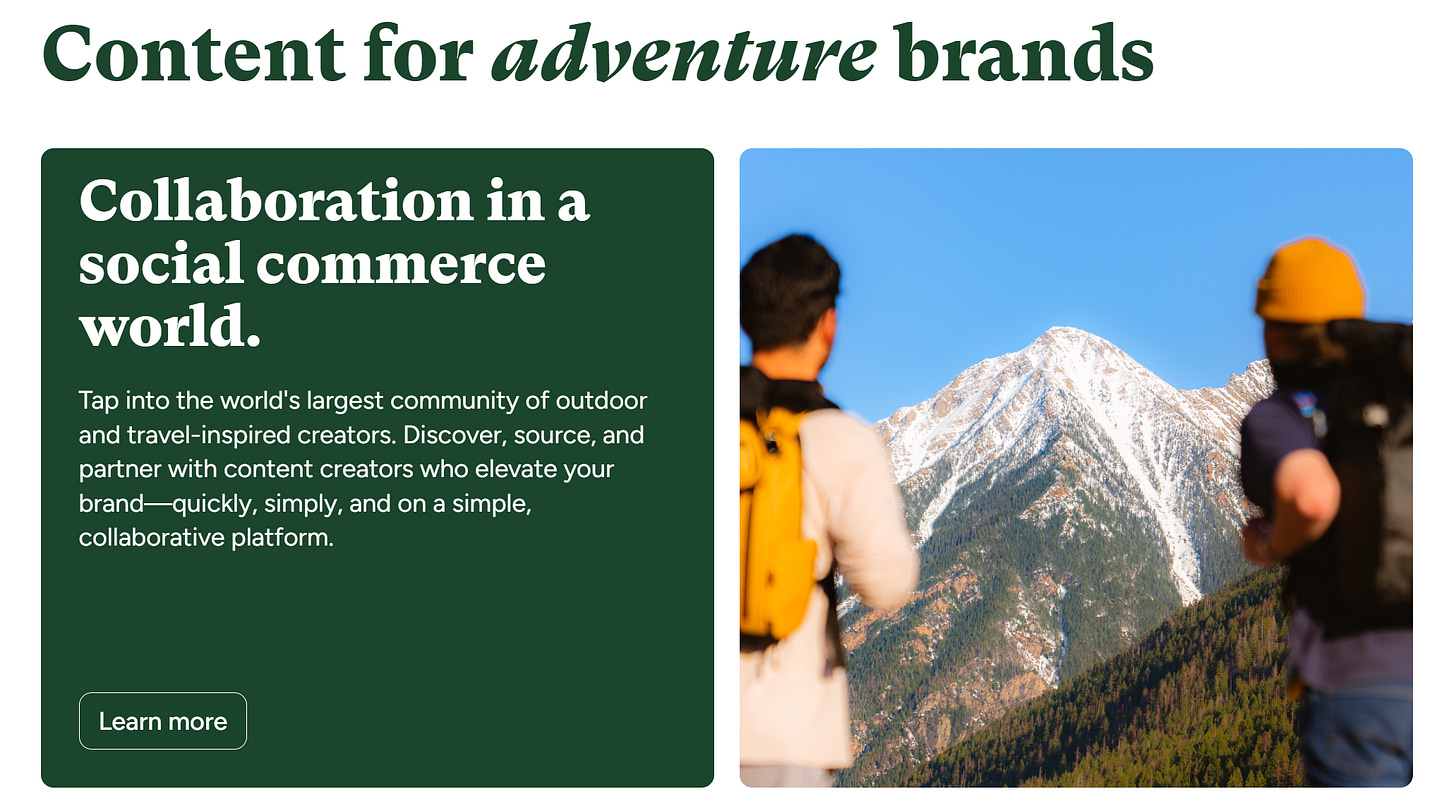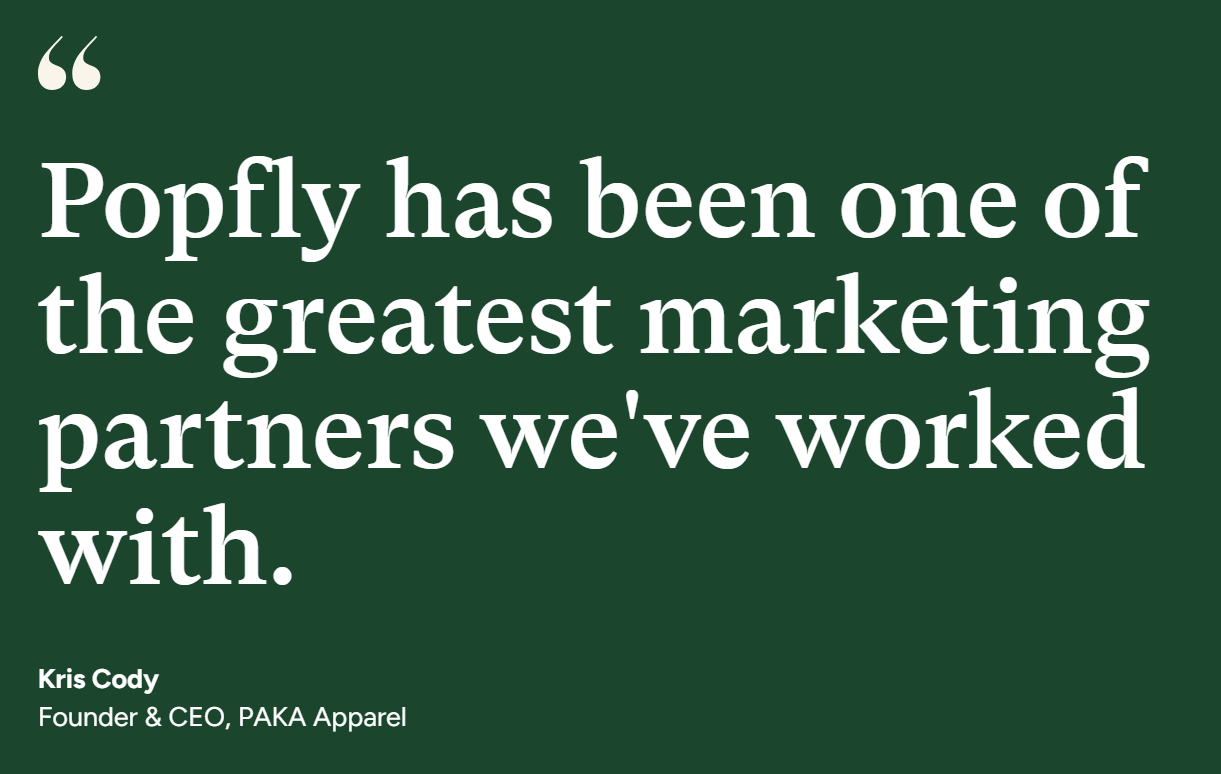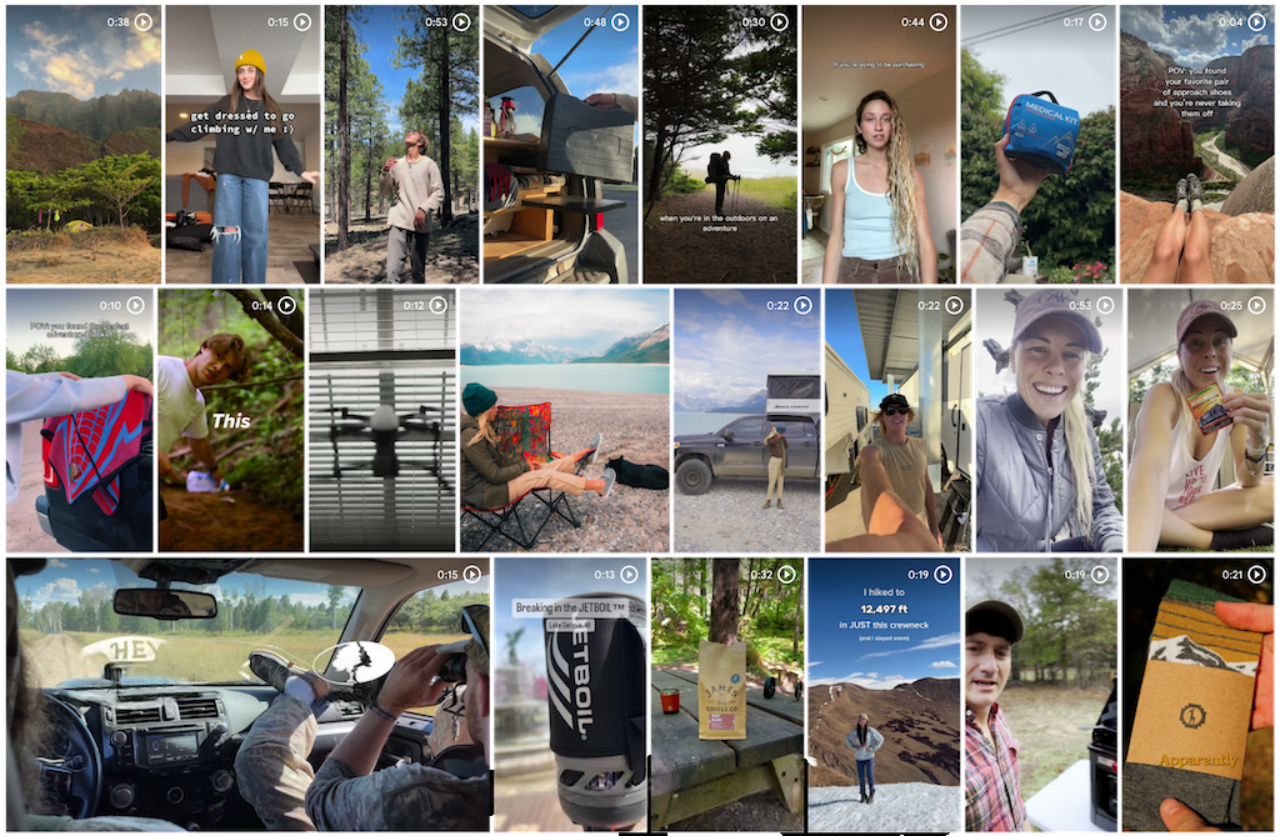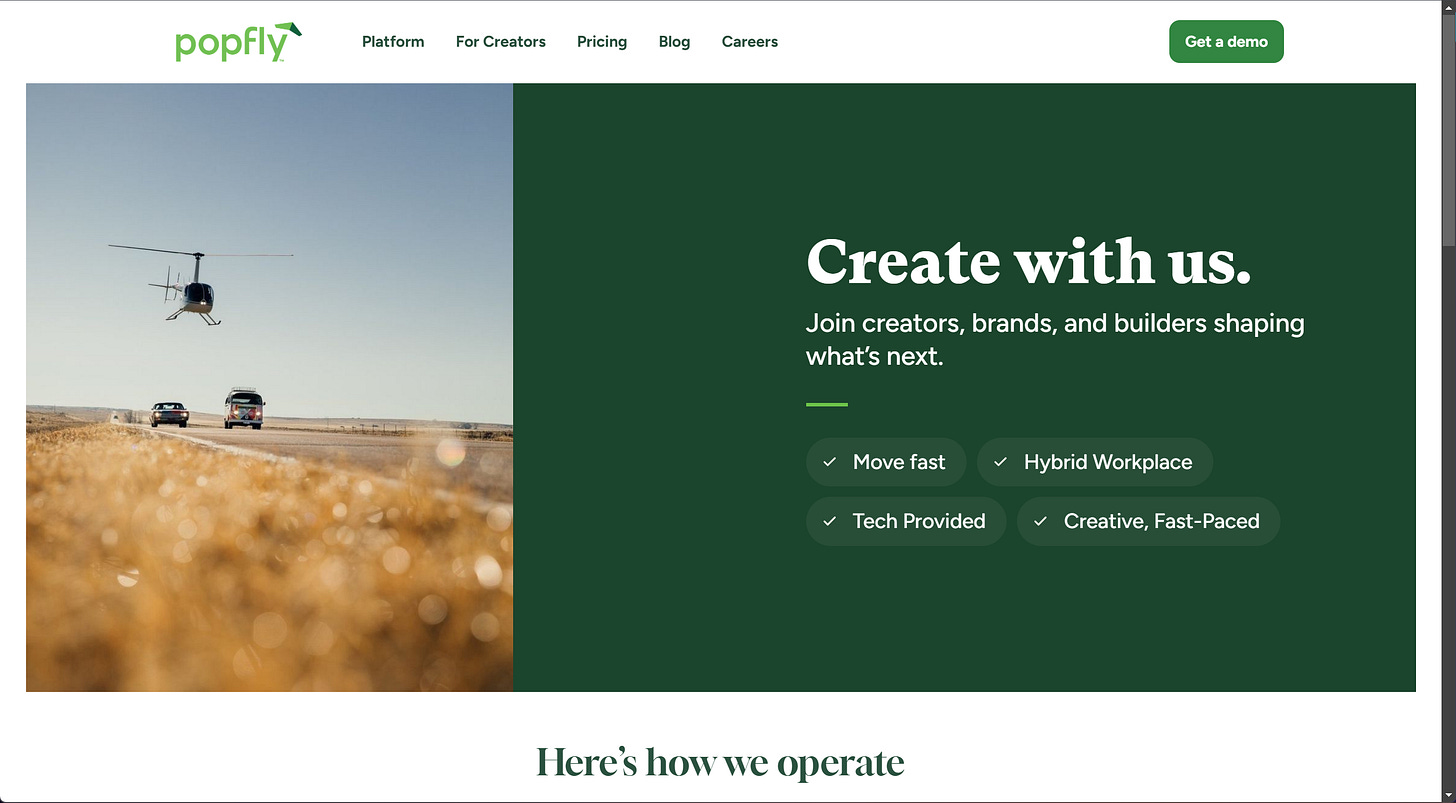Quality Can Be Cheap
And today's featured startup proves that.
Project Overview
Popfly has created a platform that connects brands with online content creators who can promote their products.
What makes this platform unique is its niche focus—it exclusively works with brands that produce outdoor and travel-related products, such as The North Face, Camp Chef, and Merrell. It connects these brands with influencers and bloggers specializing in hiking, outdoor adventures, and travel content.
While the term "bloggers" might suggest a focus on written content, Popfly primarily works with video creators—whether they produce short clips or in-depth reviews. However, the platform supports various content formats, including written articles, photography, sponsorships, and more.
The process starts with brands posting a request on the platform, outlining what they want to promote and how. Content creators registered on the platform can view these requests and respond if interested. Brands receive replies in real-time through their personal dashboard, where they can select creators to negotiate specific terms and conditions.
Collaboration opportunities vary based on budget:
$100–$1,000 per month: Brands can get photos, short videos, or posts from micro-influencers with smaller audiences.
$1,000–$5,000 per month: Higher-quality content from influencers with larger followings.
$5,000–$25,000+ per month: Includes content licensing for advertising, sponsorship deals, and brand ambassador partnerships.
One particularly interesting feature of Popfly is how it integrates content creators’ travel plans into the platform. Outdoor influencers frequently embark on trips to create content, and Popfly collects these plans directly from creators, making them available to brands. This allows brands to see where influencers are headed and offer them products to feature in their content, filmed in real-world outdoor settings.
Popfly has been around since 2022 but has only recently sought its first round of funding—successfully securing $2 million in investment.
What’s the Gist?
There are plenty of marketplaces connecting advertisers with influencers. However, most are broad and generic, aiming to match any brand with any influencer. Their main selling point is typically the sheer number of creators on the platform.
Popfly, on the other hand, focuses on quality over quantity by targeting a specific niche. As a result, the platform positions itself as offering agency-level service at marketplace-level prices.
A key differentiator is Popfly’s pricing model. At the basic $299-per-month tier, brands can post unlimited requests and receive unlimited responses without paying commissions on individual deals. However, this requires brands to handle everything themselves—from selecting influencers to negotiating terms and overseeing content production to ensure quality.
For brands that prefer a hands-off approach, Popfly offers an agency-style service where they take care of influencer selection, negotiations, and content management. This comes at an additional cost, structured through fixed fees and/or commissions.
One intriguing service within this premium offering is “data-driven insights.” While details are scarce, this likely includes assistance in creating detailed briefs for content, as well as performance forecasting based on existing content analytics.
Interestingly, Popfly still refers to this as “data science” rather than leveraging the buzzword “AI.” Unlike some competitors, the platform doesn’t overemphasize AI to market itself as cutting-edge—though, in practice, AI likely plays a significant role in its operations.
For example, other startups in the space, such as Ramdam, already use AI for tasks like writing content briefs, matching influencers with brands, and even providing AI-powered feedback on influencer-created videos to optimize content. This has reportedly increased ad performance by 80% compared to traditional manual workflows.
Moreover, Popfly’s hybrid agency-AI model is part of a broader trend. Another startup, Valid, has taken a similar approach—positioning itself as an “AI advertising agency.” In Valid’s case, AI handles the bulk of content creation, but human specialists still interact with clients, refine AI-generated content, and ensure it meets expectations.
Key Takeaways
Popfly’s approach aligns with a growing trend: blending AI-driven automation with human expertise to create service-based businesses.
The key insight? Customers don’t buy the technology itself—they buy the service and results it delivers.
This model works well for niche AI-powered agencies that don’t need massive scale but can provide higher-quality, industry-specific results faster and cheaper than traditional agencies.
Could this be an opportunity for your own AI-driven agency? What niche would you target?
Company info:
Popfly
Website: popfly.com
Last round: $2M, March 18, 2025
Total investment: $2M, rounds: 1












